Meet the third of our shortlisted gamekeepers

Few gamekeepers have put an area on the sporting map in the way Brian Mitchell has – for this is a man who has helped make Exmoor and North Devon synonymous with high pheasant shoots.
Brian is head keeper at Castle Hill, Filleigh, a 3600ha (9000-acre) shoot close to Exmoor. The shoot is lauded as the (joint) premier high bird shoot in the West Country by The Field magazine this month, and two other estates he has left his mark on are also in the top 10.
It comes as no surprise to Caspar MacDonald-Hall, shoot captain of the not-for-profit syndicate at Castle Hill. “I have known Brian since the late ’70s when he was responsible for building up Miltons at Dulverton, as an extraordinary high pheasant shoot in the West Country.
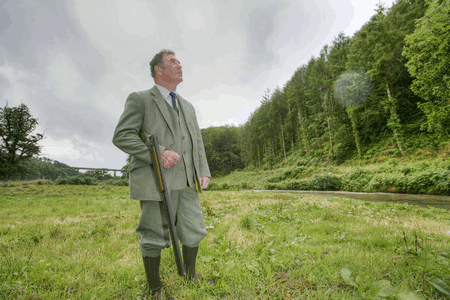
“He then moved on to develop Chargot in a similar way before finally joining Castle Hill some 20 years ago, transforming it into the outstanding high pheasant shoot, with a wonderful team of people round him, that it is today.” he states.
“I came here to maximise the potential of the shoot,” says Brian, whose format for success is being duplicated on other shoots round Exmoor, where £1 of every £3 brought in through tourism now comes from shooting. “The best shoots here have come on in the last 25 years – they would have been 2000-bird shoots before that.”
Brian’s ability is not to just think like a pheasant, but to ensure that the feeding programme and driving of the pheasants are done with incredible attention to detail, according to Mr MacDonald-Hall. “This produces extraordinary sporting days, not just for the guns but for everyone involved,” he says.
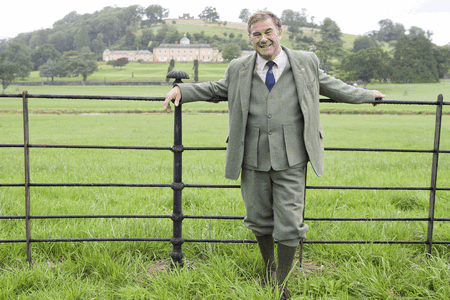
Castle Hill has deep valleys where guns can expect to be challenged and excited by the pheasants driven from high above them. “The tops can be very cold,” says Brian, who has planted them with laurels and a lot of miscanthus. He also uses a miscanthus strip between maize for steady flushing. “I pioneered the use of miscanthus in the area – it can be controversial, but in January it provides warmth and cover.”
Pheasants and some French partridge “for variety” are brought in as poults from a local dealer and imported from France. “The birds were inbred here and I don’t think we would be where we are today but for imported birds,” Brian explains.
“At the end of the year we catch up everything we can and send them to local game farms, and don’t want too many cocks left. We want clean ground for the new birds.”
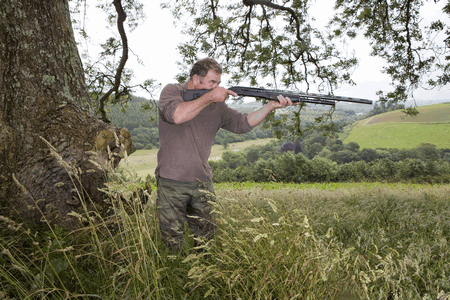
With nine different raptor species common in the area, the siting of release pens with plenty of low cover is crucial for the poults’ survival. Brian favours growing mustard to give good insect life and cover for the young birds.
“All the birds have gone to wood by the end of July. We don’t wing-clip and we get them out of pens as quickly as possible,” he says.
Brian works with three under-keepers and his wife Angie. He is glad to pass on his knowledge to younger keepers – including his son Robert, who is now head keeper on a neighbouring shoot – and sees a bright future for keepers and shooting.
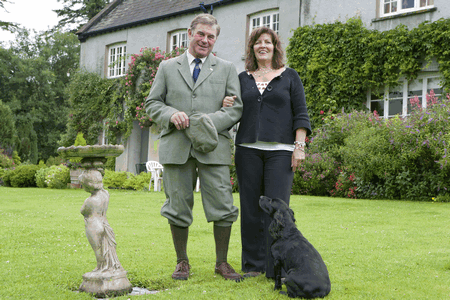
With 36 drives over four beats – five new ones created in the past year – he can meet most wind and weather conditions to produce quality birds, testing targets at 120-140ft high.
“I am always with the guns on shoot days and I watch their body language,” says Brian. “They won’t embarrass themselves by saying if they can’t hit a shot, but I can place them differently on the next drive. I don’t see the point of putting birds over guns out of range.”
In addition to the main shoot days there are also a farmers’ day and several charity fund-raising shoots.
Brian’s commitment to gamekeeping goes beyond Castle Hill. He “fell in love with it” as a schoolboy when he went beating, becoming a keeper despite his father’s advice that there was no future in it. He was an advisory member of BASC then, feeling more needed to be done for keepers, was one of the five founding members of the National Gamekeepers Organisation (NGO). A decade on he is NGO regional chairman for Devon and national vice-chairman.
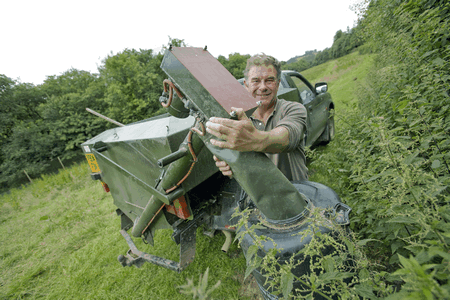
He is a founder member of the Greater Exmoor Shoots Association, which raised a substantial amount of funding for a survey of the economic impact shooting has on the Greater Exmoor area – it contributes more than £18m.
He has recently joined forces with eight other Exmoor shoots to set up a feed-buying group, which gives them the buying power to purchase at lower cost, and next season they will have a nutritionist formulate feed to their requirements.
Brian is also a tireless fundraiser and the figurehead for many campaigns. Combined with the local shooting fraternity, he has raised around half a million pounds for charities the NGO for a new village hall at Filleigh and materials for barn owl boxes that the local keepers will make and install.
What’s more, he still loves the life: Every day and every year is different, even after 43 years, he says.
“Brian is a magician – songbirds are back, the wild hares box and he follows the Code of Good Shooting Practice to the letter, say Mr Macdonald-Hall. “His effect on shooting in the West Country is truly remarkable.”
The judges
The competition judges are Tessa Gates of FW, Freddie de Lisle representing the CLA, Tom Blades of BASC. andGeoff Garrod of the National Gamekeepers’ Organisation (although Geoff did take not part in the selection of this finalist because of Brian’s NGO role).
Competition
The competition winner will be announced in Farmers Weekly next week (25 July), in tandem with the start of the three-day Game Fair at Blenheim Palace in Oxfordshire. More details of the event at www.gamefair.co.uk
See the Game Fair 2008 special report page.
